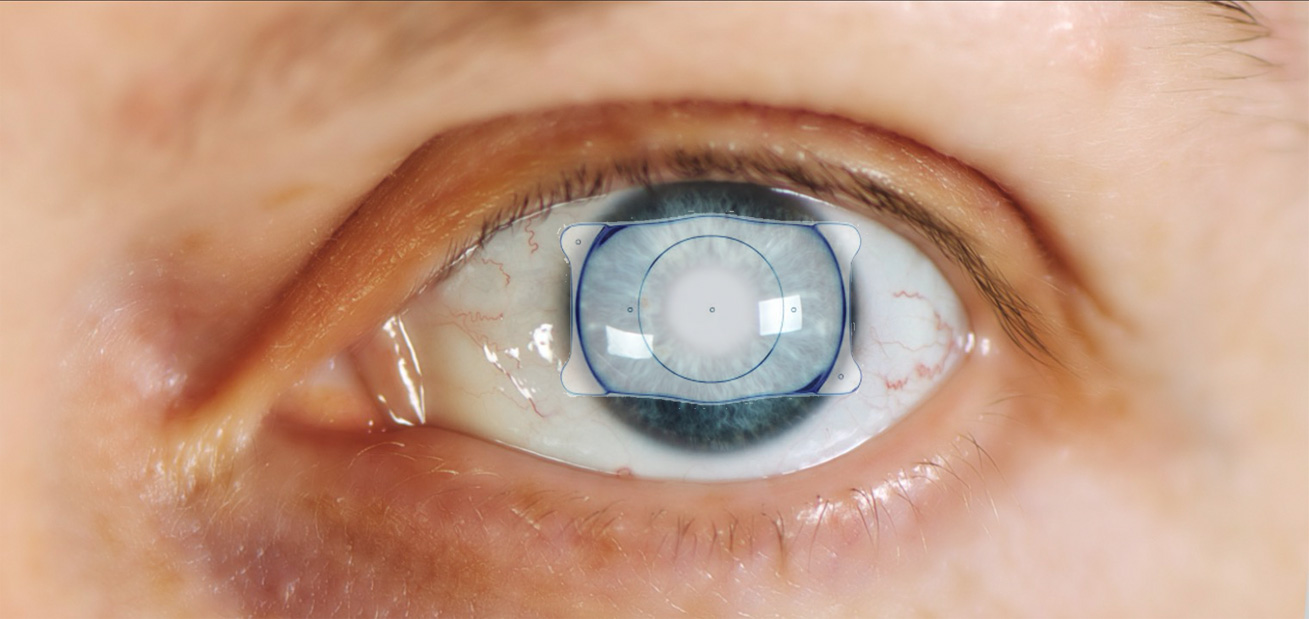For many individuals, the quest for clear and unobstructed vision is a lifelong journey. Vision correction methods have evolved significantly over the years, providing options beyond the traditional eyeglasses. One of the most innovative and liberating solutions is the Intraocular Contact Lens (ICL). In this article, we will explore the distinct advantages of ICLs over glasses and why they are becoming an increasingly popular choice for those seeking clear and convenient vision.
Understanding the Limitations of Glasses
Glasses have long been a trusted tool for correcting vision problems, offering a simple and accessible solution for a wide range of refractive errors, including myopia (nearsightedness), hyperopia (farsightedness), astigmatism, and presbyopia. While glasses offer some benefits, they also come with several limitations that can impact one's daily life and overall satisfaction with their vision correction method.
- Aesthetic Concerns: Many individuals find that glasses can alter their appearance and may not suit their style or preferences.
- Visual Distortions: The edges of eyeglass lenses can create visual distortions, known as peripheral aberrations, which can be distracting and uncomfortable.
- Limited Peripheral Vision: Glasses have frames that can obstruct peripheral vision, affecting activities that require a wide field of view.
- Dependency: Glasses require constant wear, which can lead to dependency and discomfort, especially for those with high prescriptions.
- Activity Limitations: Certain activities, such as sports or swimming, may be less enjoyable or even hindered by the need for glasses.
- Maintenance: Glasses require regular cleaning, adjustments, and can be prone to scratches and damage.
Advantages of ICLs Over Glasses
Intraocular Contact Lenses (ICLs) offer a range of advantages that make them an attractive alternative to glasses for many individuals seeking vision correction. Let's explore these benefits in detail:
- Natural and Unobstructed Vision: ICLs are implanted within the eye, directly in front of the natural lens, providing a clear and natural field of vision without any visual distortions or obstructions from frames.
- Permanent and Maintenance-Free: ICLs are a permanent vision correction solution that requires no daily maintenance, cleaning, or adjustments. Once implanted, they remain in place, offering long-lasting clarity.
- Immediate Visual Improvement: Patients often experience a rapid improvement in their vision within days of the ICL implantation procedure, leading to a swift return to daily activities.
- Wide Range of Correction: ICLs can correct a broad spectrum of vision problems, including high levels of myopia, hyperopia, and astigmatism. They are also suitable for patients with thinner corneas or those who are not candidates for laser vision correction.
- Enhanced Peripheral Vision: Unlike glasses, which can limit peripheral vision due to frames, ICLs provide an unobstructed field of view, enhancing comfort and safety, especially during activities like driving.
- Comfort and Convenience: ICLs are typically well-tolerated by the eye, offering a comfortable and convenient vision correction solution.
- Minimal Lifestyle Interruption: With ICLs, there is no need to worry about the inconvenience of glasses falling off or fogging up during daily activities. They offer a seamless and natural vision experience.
Types of ICLs
ICLs come in various types, each designed to address specific vision correction needs and preferences:
- Phakic ICLs: These ICLs are implanted in front of the natural lens and are designed for individuals with refractive errors, such as myopia or hyperopia, who want to maintain their natural lens.
- Toric ICLs: Toric ICLs are specialized ICLs designed to correct astigmatism, providing clear and stable vision for those with irregular corneal curvature.
- Refractive ICLs: These ICLs are suitable for correcting myopia (nearsightedness) and hyperopia (farsightedness) and offer excellent visual outcomes.
- Visian ICLs: The Visian ICL, in particular, is a popular choice known for its biocompatibility and ease of implantation.
- Implantable Collamer Lenses: ICLs are made from biocompatible material that is well-tolerated by the eye, minimizing the risk of rejection or discomfort.
Is ICL Surgery Right for You?
If you are considering ICL surgery as an alternative to glasses, it's essential to consult with an experienced ophthalmologist. During a comprehensive eye examination and consultation, your surgeon will assess your eye health, refractive errors, and discuss your vision goals and preferences. Together, you can determine if ICLs are the right choice for your unique needs.
Conclusion
Intraocular Contact Lenses (ICLs) offer a clear advantage over glasses for individuals seeking comfortable, natural, and unobstructed vision correction. Whether you have myopia, hyperopia, astigmatism, or simply desire the convenience and freedom from glasses, ICLs provide a versatile and effective solution.
The decision to opt for ICLs should be made after careful consideration and consultation with a qualified eye surgeon. With the benefits of rapid visual improvement, long-lasting results, and enhanced quality of life, ICLs have become a compelling choice for those seeking a clear and convenient vision correction method. Say goodbye to the limitations of glasses and hello to a world of clarity and convenience with ICLs – a clear choice for vision enhancement.
The decision to opt for ICLs should be made after careful consideration and consultation with a qualified eye surgeon. With the benefits of rapid visual improvement, long-lasting results, and enhanced quality of life, ICLs have become a compelling choice for those seeking a clear and convenient vision correction method. Say goodbye to the limitations of glasses and hello to a world of clarity and convenience with ICLs – a clear choice for vision enhancement.





















